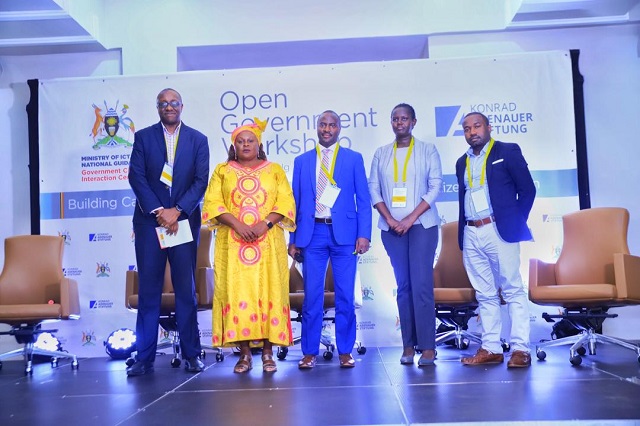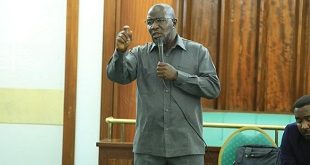
Kampala, Uganda | Julius Businge | The government of Uganda is strengthening efforts geared towards citizen engagement/public participation in monitoring of public services.
This was the general message delivered by Mary Busingye Karooro Okurut, the minister in charge of general duties at the inaugural open government workshop hosted by the Government Citizens Interaction Centre (GCIC) and Konrad Adenauer Stiftung at Mestil Hotel in Kampala on Sept.26.
Karooro said that the government has made considerable gains towards improving access to service delivery which is partly why the Ministry of ICT and National Guidance established the GCIC as a primary contact centre for citizens.
She said the centre is giving citizens access to public information. It is also providing opportunities for them to participate in the proceedings of their government which in turn promotes accountability, transparency and efficiency of government services.
She said that the Access to Information Act (2005) forms the backbone of Uganda’s open government reforms.
“The right to access public sector information is the cornerstone of an open and inclusive government,” she said, “This remains a crucial element for reducing corruption as well as deepening trust among citizens and their government.”
Through the GCIC, citizens interact with government through multiple channels including a toll-free line (900), email, social media platforms, online chat and SMS.
The good thing is that the population especially the youth are amazing when it comes to using social media/internet to communicate.
According to the UN e-government survey of 2018, Uganda’s online service index improved from 50% in 2016 to 57% in 2018, which puts the country in the high online service index bracket. It also indicated that Uganda’s e-government development index improved from 36% in 2016 to 41% in 2018.
Awel Uwihanganye, the head of GCIC said his leadership is geared towards leveraging existing and meaningful opportunities for dialogue and collaboration between government and the public.
According to a presentation delivered at the workshop, the National Development Plan (NDP) has put in place an integrated NDP monitoring system to improve the accessibility, quality and updating of monitoring and evaluation of data. The system also aims to boost transparency of the progress made, the accountability for results and consequently the interest and engagement of stakeholders in reform and implementation processes.
NPA also plans to put in place the ‘national spatial data infrastructure’ to facilitate the availability and sharing of ‘spatial data’ for improved integrated planning in the country.
The authority maintains an open door policy and its online communication channels to hear from individuals that have suggestions on development policies.
Rosa Malango, the UN Resident Coordinator for Uganda, said that policies in Uganda should be seen as an avenue to achieve targets set in the Sustainable Development Goals (SDGs).
She said that leaders must constantly engage the population at individual and institutional level on the role of SDGs to social economic transformation and economic development.
She said the struggle for identity and to be known everywhere in the world is on and that youth in Latin America, Asia, Middle East face similar challenges that Africa faces.
“As Africans we have to figure out solutions to manage our problems,” Malango said as one of the most important speakers at the workshop.
 The Independent Uganda: You get the Truth we Pay the Price
The Independent Uganda: You get the Truth we Pay the Price


